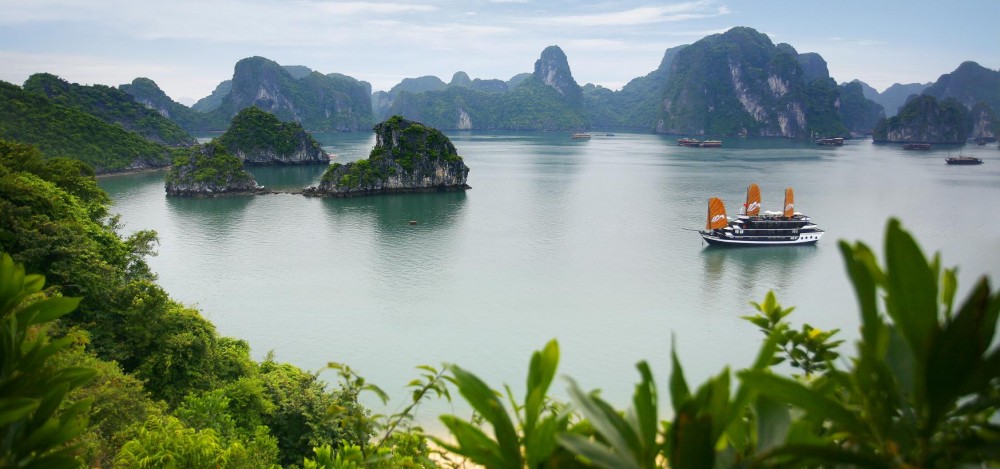I was checking the New York Times on my phone in our hotel on one of our first days in Hanoi (the Wi-Fi at the Golden Rice Hotel was much stronger than the Golden Rose’s connection, for those wondering) when I fortuitously scrolled across an article titled “In Vietnam, Rampant Wildlife Smuggling Prompts Little Concern.”
The article provides a bleak overview of the ecological situation in Vietnam, which is one of the most biodiverse and intensely verdant in the world. Despite the intense damage wrought by America’s intensive bombing campaigns (which employed conventional bombs, cluster munitions, and chemical defoliants) from 1965 through the early 1970s, Vietnam has regained some of its forest cover, even if many people and much wildlife continue to suffer the effects of these campaigns. But the greatest threat to Vietnam’s continued Eco diversity appears not to be the lingering effects of defoliants and munitions, but rather illegal logging and illegal poaching. Vietnam’s wild rhinoceros are already extinct, and it does not look good for its wild tigers; even the humble pangolin, a scaly anteater of sorts, has been hunt nearly to extinctions for its meat and medicinal properties.
I didn’t think much of the article after reading, though. I was upset that the Ho Chi Minh City restaurant mentioned in the article, which I literally walked past every single day, so obviously and easily subverts laws protecting endangered and trafficked species. Even worse is the fact that tourists seem to drive much of the business at the restaurant (both western and Asian—the latter group often believing in the homeopathic uses of many exotic organism). Sometimes, it is probably an unwitting participation; on our tour of the Mekong Delta, we stopped at a candy-making establishment that was part local delight, part tourist trap. After viewing how various Vietnamese candies are made, we were led to a room where we could indulge in snacks and tea while browsing a large selection of liquor bottles that had cobras floating in them. Besides the question as to why anyone would want to consume snake liquor (ok, full disclosure, I have had it before, and I still don’t know the answer to this question), cobras are endangered in Vietnam and very illegal to traffic. I didn’t realize this until after returning to the US; in Vietnam itself I was largely unaware of the existence of wildlife trafficking before my very eyes. As the article points out, the authorities simply don’t really care enough about wildlife protection laws to stifle economic activity, and can profit off it themselves. These facts did not come as a shock to me, as it is fairly typical of most Southeast Asian countries.
Anyway, I didn’t think much about the article or the general problem of Vietnam’s environmental and economic degradation until we got to Ha Long Bay. The bay was intensely crowded with pleasure cruise ships, all packed with tourists, and on our couple-hour-long cruise out to the center of the bay where we went on a very nice kayak outing, we passed innumerable trails of trash. Many of us glumly stared at the trash from the deck and noted that most of it were products supplied on our very own ship—it seemed most likely that many of the ships simply dumped their trash in the bay’s waters rather than disposed of it properly. The water unsurprisingly looked pretty disgusting at many points, though we were brave enough to go swimming in it at one point (if only to escape the oppressive stickiness of the air). Our guide told us at one point that the fish in Ha Long Bay were disappearing—she didn’t say why, but it seemed likely that a combination of overfishing, pollution, and warming waters are playing a role.
The garbage floating in the bay—Pringles tubes, Bia Hanoi cans, Oreos wrappers, etc.—seemed more than anything else to represent the difficult situation Vietnam finds itself in, at the place where necessity and apathy intersect on the road to economic development. Many pangolin hunters likely have no other source of income or opportunities to support themselves; perhaps the government hasn’t provided easy and cheap methods of garbage disposal for ships that trawl Ha Long Bay. The economic boom brought by tourism and the Doi Moi reforms have obviously exacerbated and accelerated Vietnam’s ecological and environmental degradation. It’s not particularly unusual that the country has sought to prioritize development at the cost of its environment, but it strikes me as odd that, having lost during the war so many of the natural resources that once made the country so ecologically rich, Vietnam—rather than celebrating and protecting what remained and what it has regained—has instead relegated its exceptional ecological diversity as something of a war relic itself: best worth forgetting about and moving on from in favor of modernity and development.
